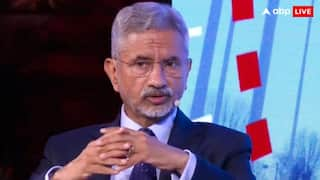PM Modi To Visit Al-Hakim Mosque In Egypt Tomorrow: Why It Is Significant
The Al-Hakim Mosque portrays Fatimid architecture and history in Cairo and is an important cultural site for the Dawoodi Bohra community. PM Modi will spend nearly half an hour at the site.

Prime Minister Narendra Modi will on Sunday visit the 11th-century Al-Hakim Mosque on the second day of his visit to Egypt. The Prime Minister will spend nearly half an hour at the Al-Hakim Mosque -- a historic and prominent mosque in Cairo named after Al-Hakim bi-Amr Allah (985-1021), the 16th Fatimid caliph. The mosque of al-Hakim bi-Amr Allah is an important cultural site for the Dawoodi Bohra community in Cairo and PM Modi shares a long-standing relationship with the community, from when he was the Chief Minister of Gujarat.
During his Egypt visit, PM Modi will also visit the Heliopolis War Grave cemetery to pay tribute to the Indian soldiers who made the supreme sacrifice fighting for Egypt during the First World War.
#WATCH | PM Modi to visit the historic Al-Hakim Mosque built during the Fatimid dynasty in Cairo on his two-day State visit to Egypt starting on June 24 pic.twitter.com/P4y8rXJgCd
— ANI (@ANI) June 23, 2023
About Al Hakim Mosque
The al-Hakim bi-Amr Allah Mosque is nearly 1000 years old structure in the heart of the Egyptian capital of Cairo on the east side of al-Mu'izz Street, just south of Bab al-Futuh (one of the northern city gates of Fatimid Cairo).
The Al-Hakim Mosque portrays Fatimid architecture and history in Cairo. The rectangular mosque spans an area of 13,560-metre square out of which 5000 square metres is the large courtyard or sahn at the centre. The remaining area is divided into the four covered halls on each side of the mosque, with the Bayt al salat, or sanctuary area and prayer hall towards the qibla wall, being the largest at 4,000 square metres and including five bays.
The mosque has eleven gates and the most important is the central one on the main facade, made of stone. The gate has a prominent portico with carved niches and squares on its tip, similar to the Mahdiyah Mosque in Tunisia.
It was reopened on February 27 this year following extensive renovations that took six years to complete. The renovation work began in 2017 and included repairs to water damage and cracks in the walls. Wooden fixtures such as the mosque's doors, its pulpit, and the signature decorative wooden tiles that line the base of its ceilings, were repaired, as per news agency ANI.
ALSO READ | 'Adding Momentum To India-US Friendship': PM Modi Concludes America Visit, Next Stop Egypt — Details
PM Modi's Relationship With Dawoodi Bohra Community
As previously mentioned, Prime Minister Modi has had a long-standing relationship with the community from when he was Gujarat's chief minister. In 2011, he invited the community to celebrate the 100th birthday of the then-religious head of the Dawoodi Bohra community, Syedna Burhanuddin.
When Burhanuddin died in 2014, PM Modi visited Mumbai to offer condolences to his son and successor, Syedna Mufaddal Saifuddin.
PM Modi has previously praised the business acumen of the community and their measures for social reforms. He has also mentioned how the community helped and hosted Mahatma Gandhi during Dandi March, a legendary protest in India's freedom struggle.
PM Modi visited Syedna Mufaddal Saifuddin, the current religious head of the community in 2015, and has shared a cordial relationship with him. In 2016, Syedna called on the Primer Minister who recalled his relationship with four generations of Dawoodi Bohra religious heads.
Even during his visit to Bangladesh, PM Modi met with a delegation of Dawoodi Bohras. In 2018, the Prime Minister addressed a gathering of Dawoodi Bohra community during the Ashara Mubaraka, the Commemoration of the Martyrdom of Imam Hussain (SA), at Indore's Saifee mosque.
As per reports, the community has responded to PM Modi's outreach with support abroad by attending his overseas events in large numbers in 2014, including the Madison Square Garden event in New York and the Olympic Park Arena speech in Sydney.
The visit assumes significance as Egypt has traditionally been one of India's most important trading partners in the African continent. India-Egypt Bilateral Trade Agreement has been in operation since March 1978 and is based on the Most Favored Nation clause, according to the Egyptian Central Agency for Public Mobilization and Statistics (CAPMAS).
Subscribe And Follow ABP Live On Telegram: https://t.me/officialabplive





































